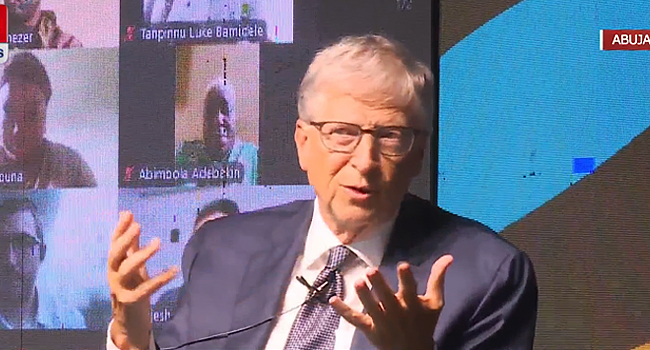Bill Gates, co-chair of the Bill and Melinda Gates Foundation, stated that Nigeria receives the largest share of the foundation’s intervention funds allocated to Africa.
Gates made this remark during an interview with selected journalists at the 2024 NutriVision Dialogue held in Abuja on Tuesday.
He emphasized that the foundation’s top priority is to reduce global health inequalities, with a focus on eradicating diseases such as measles, malaria, and polio.
“We spend a lot in Asia, but we spend even more in Africa. The country we spend the most in Africa is Nigeria.
“That makes sense because of the population and because of the incredible needs that are here.
“That means that I’ve literally spent billions in Nigeria.
“I feel glad that things like the child mortality rate have come down, but we could do a lot better,” he said.
Gates further said that the foundation planned to spend more in the future, disclosing that the funding would be centred on improving primary health care.
“Our work is almost entirely primary health care because the impact per dollar is dramatically greater than anywhere else,” he said.
He mentioned that in addition to healthcare, the foundation invests significantly in the agricultural sector, recognizing that enhancing agricultural productivity is crucial for Nigeria’s economic growth.
According to him, this goal can be achieved by providing farmers with access to high-yield, climate-resistant seeds, fertilizers, improved and timely information, and better weather forecasts.
He believes this approach will greatly increase agricultural output and reduce food costs.
The philanthropist also noted that the foundation supports partners in implementing food fortification of staple foods, which enhances the nutritional quality of the food supply and provides a public health benefit.
He emphasized the importance of access to a variety of affordable foods, particularly milk and eggs, in combating malnutrition.
Gates highlighted the need to leverage innovative ideas and tools in the health and agricultural sectors to significantly reduce malnutrition.
The News Agency of Nigeria (NAN) reports that since its establishment in 2000, the foundation has partnered with African regional institutions, national governments, and local communities in 49 African countries.
These partnerships have contributed funding and scientific expertise to support their agendas for change, leading to the success of numerous initiatives in health, agriculture, equality, and poverty reduction.
The foundation has committed over $7 billion through 2026 to support African countries and institutions in developing and implementing innovative strategies to tackle hunger, disease, gender inequality, and poverty.



